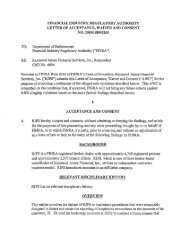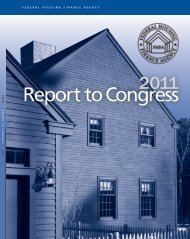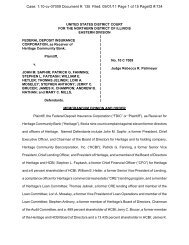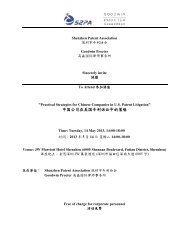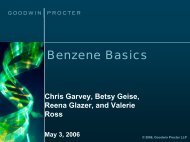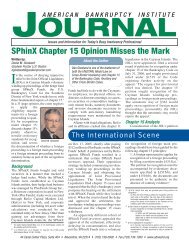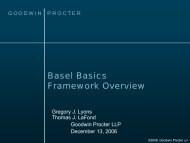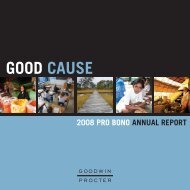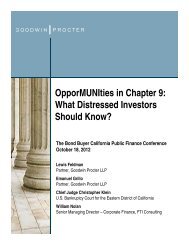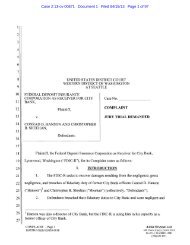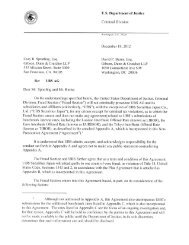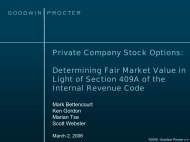Krueger v. Ameriprise Financial, Inc. - Blog
Krueger v. Ameriprise Financial, Inc. - Blog
Krueger v. Ameriprise Financial, Inc. - Blog
You also want an ePaper? Increase the reach of your titles
YUMPU automatically turns print PDFs into web optimized ePapers that Google loves.
CASE 0:11-cv-02781-SRN-JSM Document 67 Filed 11/20/12 Page 42 of 44<br />
there is no affirmative right for an employer to seek a refund for alleged overpayments<br />
under ERISA, the Eighth Circuit Court of Appeals has held that employers can have a<br />
federal common law right of action for unjust enrichment to recover those<br />
contributions.”); St. Paul Warehouse Emps. Welfare Fund v. SPS Cos., No. 07-235, 2008<br />
WL 239521, at *4 (D. Minn. Jan. 29, 2008) (same); Am. Cleaners & Laundry Co. v.<br />
Textile Processors Union Local 161, 482 F. Supp. 2d 1103, 1115–16 (E.D. Mo. 2007)<br />
(same). Plaintiffs argue that, because courts have found that claims for federal common<br />
law unjust enrichment are available when ERISA does not provide a remedy, that they<br />
have properly stated an alternative claim that gives them a basis for relief.<br />
Defendants respond that Plaintiffs are urging the Court to sanction a non-statutory<br />
claim for federal common law unjust enrichment based on cases involving a specific<br />
scenario—employers seeking to recover mistaken overpayments from plans. They argue<br />
that Plaintiffs cannot rely on the reasoning in those cases, which allowed restitutionary<br />
claims, because ERISA itself contains no rights for an employer to seek relief when it<br />
mistakenly makes overpayments to a plan. Defendants further contend that ERISA<br />
specifically provides the rights and remedies applicable to the conduct alleged by<br />
Plaintiffs. ERISA § 502(a)(2) and (a)(3) specifically authorize remedies against persons<br />
who cause plan losses or profits at a plan’s expense. 29 U.S.C. § 1132(a)(2), (a)(3). The<br />
remedies provided in § 205(a)(2) and (a)(3) are bounded: section 504(a)(2) requires a<br />
breaching fiduciary, while § 502(a)(3) allows only “appropriate equitable relief.” See,<br />
e.g., LaRue v. DeWolff, Boberg & Assoc., 552 U.S. 248, 254 (2008) (§ 502(a)(2) is<br />
limited to particular fiduciary breaches); Mertens v. Hewitt Assocs., 508 U.S. 248, 256<br />
42



